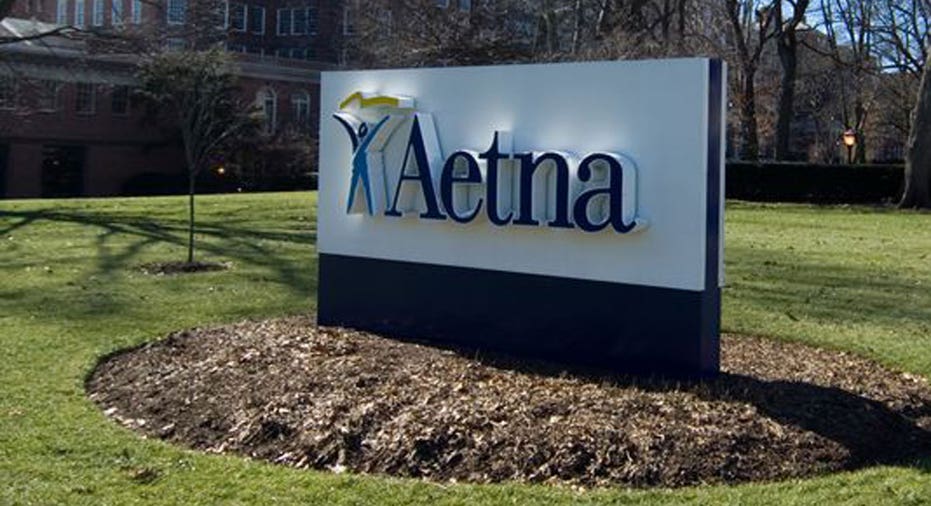Aetna Will Not Expand Obamacare Business in 2017

Aetna Inc said on Tuesday that it no longer planned to expand its Obamacare business next year and would sell some Medicare Advantage assets as it fights to gain antitrust regulators' approval for its takeover of Humana Inc .
The U.S. health insurer, which is losing money on the plans it sells in 15 states to individuals on exchanges created under President Barack Obama's national healthcare law, said it also was looking at whether it should continue to offer the contracts.
The company's reassessment of Obamacare follows an April announcement by UnitedHealth Group Inc that it would largely exit the individual insurance market in 2017 and as other large insurers, including Humana and Anthem Inc, are expressing concern about the losses they are incurring from it.
Aetna's potential retreat increases pressure on the exchanges to ensure consumers have enough affordable options, said Fitch Ratings analyst Mark Rouck. "It's fair to say the results from the exchange business have been worse than people expected," he said.
Gary Claxton, director of the Henry J. Kaiser Family Foundation's Health Care Marketplace Project, said the federal government was working on changes aimed at attracting more insurers, including altering a risk-adjustment program.
"I don't think (Aetna's decision) changes the tenor of the overall situation," he said. "It's challenged. There are reasons for people to worry, but there are also reasons to be optimistic."
U.S. Department of Health and Human Services spokeswoman Marjorie Connolly said the exchanges would continue to thrive as insurers compete for consumers' business.
"Consumers coming back to shop for 2017 will continue to have a robust set of choices," Connolly said in a statement.
Aetna's re-evaluation is a departure from its stance at the beginning of the year, when Chief Executive Officer Mark Bertolini said he believed the insurer had an obligation to stick with the public health exchange market.
What has changed, he said, is that patients who signed up for Aetna's exchange plans in 2016 have proved to be much sicker than those who enrolled the year before.
"Because the whole pool is so ill, there's so much utilization," Bertolini said in an interview. "Everybody's losing money."
Aetna said its exchange-based plans for individuals had a pretax operating loss of $200 million in the second quarter, and it projected the loss from that business would exceed $300 million by year-end. It had initially expected to break even on the plans.
MERGER BATTLE
The company's review of its exchange business also comes as Aetna prepares for a court battle against the U.S. Department of Justice, which in July sued to block the proposed $33 billion purchase of Humana on grounds that it would harm competition across the country. The department has also moved to stop Anthem's planned acquisition of Cigna Corp.
Asked about the timing of Aetna's Obamacare re-evaluation, Bertolini said people seeking care through the exchange products need coverage, but the company also has an obligation to its 23 million other customers who need to have a solvent insurer.
In May, Humana also said it was considering ending the sale of Obamacare individual plans in some states in 2017 to stem losses there.
Aetna said the $117 million deal with Molina addressed a major concern of the Justice Department in its challenge to the Humana acquisition by giving older people more options for Medicare coverage.
Molina Healthcare Inc plans to buy a portfolio of about 290,000 Medicare Advantage members in 21 states from Aetna and Humana.
Aetna reported higher-than-expected quarterly revenue and earnings on Tuesday as membership grew in its government business, which sells Medicare and Medicaid plans.
Shares of Aetna were up 1.3 percent at $115.90 in afternoon trading.
The insurer affirmed its full-year outlook for operating earnings of $7.90 to $8.10 a share.
Aetna's medical benefit ratio, the percentage of premiums spent on claims, rose to 82.4 percent from 81.1 percent a year earlier as medical costs increased in the Obamacare business.
Net income rose 8 percent to $790.8 million, or $2.23 per share.
Excluding special items, Aetna earned $2.21 per share, exceeding the analysts' average estimate of $2.12, according to Thomson Reuters I/B/E/S.
Revenue rose about 5 percent to $15.95 billion, beating Wall Street expectations of $15.69 billion. (Reporting by Amrutha Penumudi in Bengaluru and Susan Kelly in Chicago; Additional reporting by Diane Bartz in Washington; Editing by Lisa Von Ahn)



















